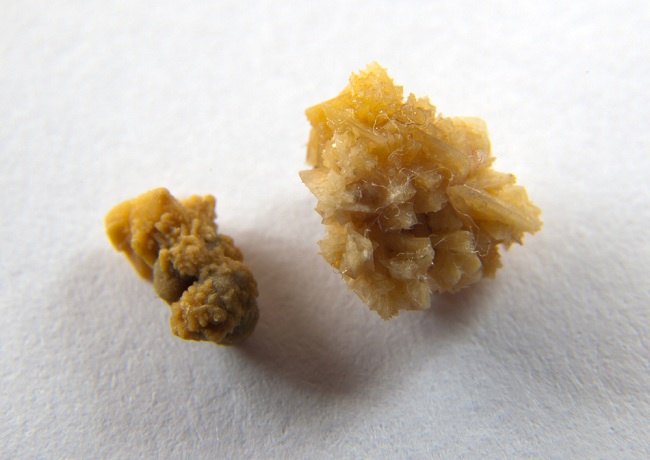Anemia in children can cause them to be lethargic and not enthusiastic in carrying out their daily activities. If not treated immediately, anemia can cause problems in child development. Therefore, it is important for parents to recognize anemia in children, so that it can be handled immediately.
Anemia or better known by the public as lack of blood is a condition in which the number of red blood cells in the body is reduced to below normal limits.

This disease can occur when the body has difficulty producing red blood cells or there is damage to red blood cells. Anemia can also occur due to heavy bleeding, so that the number of red blood cells and hemoglobin (Hb) decreases drastically.
There are many factors that can cause a child to develop anemia, namely:
- Genetic disorders, for example in thalassemia and sickle cell anemia.
- Deficiencies in certain nutrients or nutrients, such as iron or vitamin deficiencies (folic acid and vitamin B12).
- Certain diseases, such as autoimmune diseases, bone marrow disorders, hemolytic anemia, hypothyroidism, and kidney failure.
- Chronic infection.
- Side effects of certain drugs or chemical exposure.
- Serious injury or injury.
- Cancer, such as blood cancer (leukemia).
Recognize the Symptoms of Anemia in Children
Anemia in children in the early stages often shows atypical symptoms, there are even children with anemia who do not feel any complaints or symptoms.
Because it is difficult to identify, many cases of anemia in children are only detected when complications due to anemia have occurred, such as growth and development disorders or disorders of certain organs, such as the heart, brain, and kidneys.
But usually, before the condition is severe, children with anemia will show some of the following signs and symptoms:
- Often looks weak or tired.
- Less willing to play or interact with people around him.
- The skin looks pale or yellowish.
- Yellow eyes.
- Often complains of headaches, dizziness, or pain in bones or certain body parts.
- Heart beat.
- Hard to breathe.
- Frequent infections.
- Wounds that are difficult to heal.
In children who are already in school, anemia can also cause complaints in the form of learning difficulties or difficulty concentrating in class.
Signs and symptoms of anemia in children are often non-specific and can mimic other diseases. Therefore, if you find some of the above complaints in your child, immediately consult a doctor or pediatrician, a hemato-oncologist so that the cause can be ascertained.
In determining the cause and type of anemia in children, doctors need to carry out physical and supporting examinations, such as blood tests, bone marrow aspiration, to genetic examinations if anemia is suspected to be caused by genetic disorders.
Proper Handling of Anemia in Children
Handling of anemia in children will be adjusted to the cause. The following are some of the treatments that doctors will do to treat anemia in children:
1. Giving siron and vitamin supplements
If anemia in children is caused by a lack of iron or certain vitamins, such as folate and vitamin B12, the doctor will prescribe iron or vitamin supplements in the form of syrup, tablets, or powder. The dose of supplementation in children will be adjusted according to the child's weight and age.
In addition to giving supplements, the doctor will also advise you to give your little one foods that are rich in iron or vitamins. This aims to help the child's body produce enough hemoglobin and red blood cells.
2. Giving antibiotics or deworming drugs
In anemia caused by a bacterial infection, the doctor will give antibiotics to kill the bacteria causing the infection. Meanwhile, if the cause is a worm infection, the doctor will give worm medicine for the child.
Anemia in children will usually improve after the infection is resolved. But to speed up recovery, give your child nutritious food, especially foods that contain iron and vitamin B12.
3. Discontinuation or replacement of the type of drug that causes anemia
If anemia in children is caused by side effects of drugs they take regularly, the doctor will stop or replace the drugs with other drugs that do not cause anemia side effects. Before deciding this, the doctor will certainly consider the benefits and risks of using the drug.
4. Blood transfusion
If the anemia experienced by the child is severe, the doctor may suggest a blood transfusion. In addition, blood transfusions will also usually be routinely performed on children with anemia due to certain diseases, such as thalassemia and sickle cell anemia.
5. Bone marrow transplant
This method is used to treat anemia in children caused by disorders of the bone marrow and aplastic anemia. Doctors also usually recommend a bone marrow transplant to treat anemia in children caused by blood cancer.
In certain cases, anemia in children must be treated with surgery. To determine the right steps for handling anemia in children, along with the risks and side effects, you need to consult further with a pediatrician.
How to Prevent Anemia in Children
The best way so that your little one avoids anemia is to give him nutritious and balanced food.
If your little one is still breastfeeding, try not to give cow's milk before he is 1 year old. Breast milk does have a lower iron content than cow's milk, but babies' digestion is better able to absorb iron from breast milk than cow's milk.
When your little one is ready to eat solid food (MPASI), you can provide additional iron intake from foods rich in iron, such as meat, fish, spinach, broccoli, potatoes, and tofu.
If the child is old enough, you can also provide additional iron intake from multivitamin supplements for children. However, it is recommended that you consult with your doctor first to determine the right type of supplement and dosage to prevent anemia in children.









